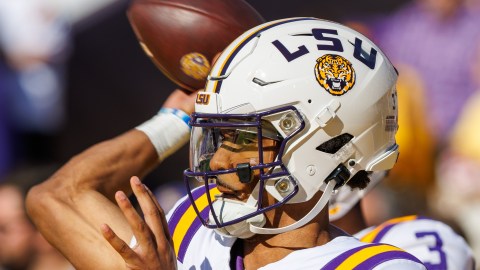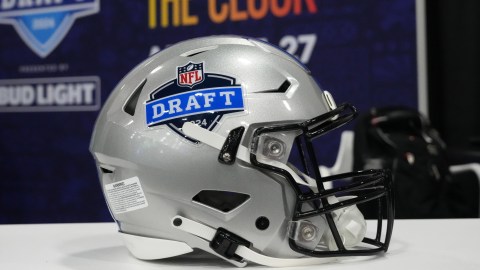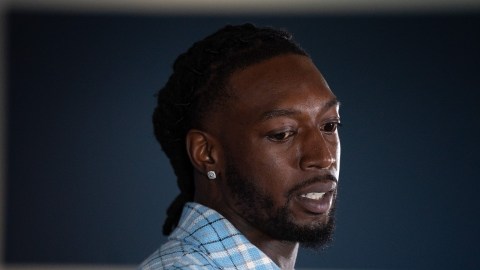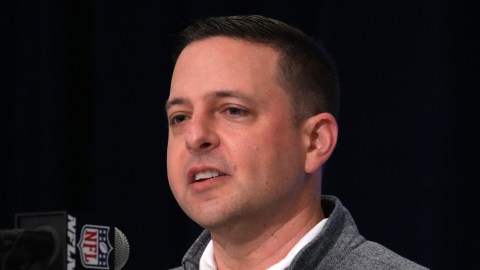 Editor’s note: Each day during the week of Dec. 31, NESN.com will feature content based on key events from Robert Kraft’s tenure as owner of the Patriots. “Krafting a Legacy” will examine how the Patriots got to where they are today following Kraft’s purchase of the team.
Editor’s note: Each day during the week of Dec. 31, NESN.com will feature content based on key events from Robert Kraft’s tenure as owner of the Patriots. “Krafting a Legacy” will examine how the Patriots got to where they are today following Kraft’s purchase of the team.
Let’s be clear, no one is going to mistake Bill Parcells‘ tenure in New England for Bill Belichick‘s. Four seasons — two losing — without a Super Bowl ring doesn’t quite have the same allure as 13 seasons — 12 winning — with three Super Bowl rings.
Yet, in looking back on Parcells’ days with the Patriots, it’s hard to be overly critical. In fact, Parcells’ reign went a long way toward kick-starting the winning culture that soon became New England’s trademark.
When Parcells took over in New England prior to the 1993 season, the Patriots were a sputtering franchise, to say the least. They had gone 14-50 over the previous four seasons, which included a 1-15 1990 campaign and a 2-14 finish in 1992. Winning wasn’t as much on Patriots fans’ minds as it was a laughable concept reserved for fools and ultimate optimists.
But with Parcells’ arrival — and the first overall pick in the 1993 draft — came a great deal of hope. The Big Tuna hadn’t roamed the sidelines since winning Super Bowl XXV with the Giants, but he was a proven coach with a far better professional track record than Rod Rust or Dick MacPherson. Surely, if there was anyone who could make winning an option, or even a reality, it was Parcells.
It took Parcells a year, but after a 5-11 finish in his first season, he guided the Pats to a 10-6 finish and their first playoff berth in eight years in 1994, showing that winning could be more than just a pipe dream in New England. The Patriots took a step backward in 1995, finishing 6-10, but Parcells got them back on the right path in 1996, leading them to their second Super Bowl appearance in franchise history.
But aside from just bringing a winning attitude to Foxboro, it was the parts that Parcells helped put in place that truly reflected a change. (After all, all of the rah-rah stuff can only work for so long, especially at the professional level.)
Parcells essentially served as the team’s general manager during his four years, and he had a great deal of power over the team’s personnel decisions. And while it was actually a power struggle over personnel decisions that ultimately led to Parcells’ resignation following the 1996 season, he proved before his departure that his football acumen extended beyond X’s and O’s and being a motivator. Many of his acquisitions would go on to play a role not only on his teams, but also on Belichick’s championship squads.
Parcells’ most famous draft pick was also his first in New England. The longtime coach scooped up Drew Bledsoe with the first overall pick in 1993, and watched as he evolved into a Pro Bowl quarterback. But in addition to Bledsoe, Parcells’ tenure also saw the Patriots draft Chris Slade (1993, second round), Troy Brown (1993, eighth round), Willie McGinest (1994, first round), Ty Law (1995, first round), Ted Johnson (1995, second round), Curtis Martin (1995, third round), Terry Glenn (1996, first round), Lawyer Milloy (1996, second round) and Tedy Bruschi (1996, third round). The team also signed future Hall of Fame kicker Adam Vinatieri as an undrafted free agent in 1996.
Clearly, there are some worthwhile names on that list, and ones that are held in high regard around Patriot Place these days. Parcells’ most important product, however, donned a headset rather an a helmet.
Belichick began working under Parcells in the Giants organization in 1979, when Parcells was New York’s defensive coordinator and Belichick was a defensive assistant. They would work together until Parcells’ first retirement 1990, at which point Belichick became head coach of the Cleveland Browns. The separation was only temporary, though, as Belichick joined Parcells’ staff in New England in 1996, and then went with him to the Jets as an assistant following Parcells’ 1996 resignation — even playing a role in helping to get Parcells to the Meadowlands.
Belichick had agreed to take the Jets’ head coaching position before the 1997 season, with Parcells accepting an advisory role in an effort to beat the system — since Parcells technically had contractual commitments to the Patriots. The move didn’t go exactly according to plan, but it would have been easy for Robert Kraft and the Patriots to completely write off Belichick all together. Instead, they saw something during his brief 1996 stint in New England that made them look toward him upon firing Pete Carroll after the 1999 season.
“[Kraft] remembered how as Belichick was leaving the Patriots, he not only spoke to him about the personnel on the team but how thorough he was in his presentation. That was his guy, and it was the right time,” Gary Myers wrote in his 2012 book, Coaching Confidential: Inside the Fraternity of NFL Coaches.
Would this have happened without Parcells? Perhaps. Belichick’s talent is undeniable, and he in many ways differs from Parcells. But Parcells was the guy who helped give Kraft his first real glimpse of Belichick, which obviously culminated in a pure infatuation.
There’s also some change that might have been instilled in Kraft through dealing with Parcells. Parcells had plenty of power in New England, but he wanted complete control over the team’s personnel decisions, something he reportedly didn’t have when the Pats selected Glenn in the first round in 1996. From the power struggle came Parcells’ famous quote.
“They want you to cook the dinner, at least they ought to let you shop for some of the groceries,” Parcells said.
Nowadays, there’s little doubt that Belichick does most — if not all — of the Patriots’ shopping. And sure, Belichick has made a few lackluster personnel decisions along the way, but three Super Bowl rings and five Super Bowl appearances say that he’s doing something right.
There’s surely a little bit of Parcells inside Belichick. We might not realize it on a day-to-day basis, as Belichick has since established his own persona — the Belichickean Way, if you will — but the duo’s longstanding relationship, to at least some extent, helped Belichick develop into one of the greatest coaches in NFL history.
That’s reason enough to throw The Big Tuna a little praise every now and then.




